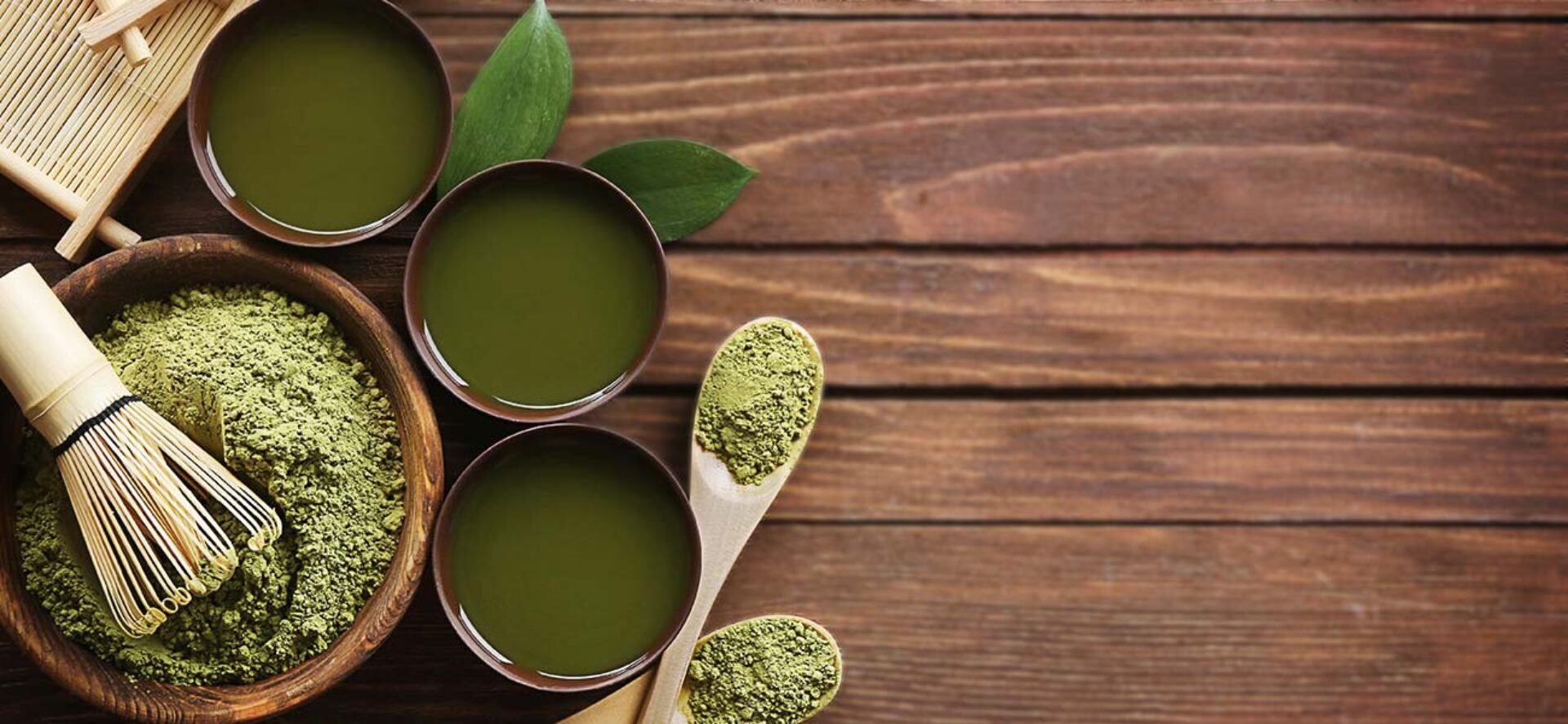Matcha tea is just the brew to keep you calm and connected with a more natural world when the heady news of self-driving cars and cyborg companions threatens to send you into techno-overload.
What are the benefits of Matcha?

A Natural and Ancient Remedy
As coffee was the beverage of the noughties, now tea is making a stunning comeback as boutiques and chains devoted to that steamy leafy stew are beginning to sweep their presence back onto the high-street. As we gather ourselves more firmly into the twenty-first century, contrary to the predications of popular culture in the eighties, we are turning our minds to classic comforts rather than devising even faster ways to consume packaged foods (think Back to the Future II).
This is where Matcha has splashed her dazzlingly green presence into western culture. Originally a cleansing drink favoured by the Chinese and soon after adopted into Japanese tea drinking traditions, Matcha is a delicate powder that if brewed correctly, can have ceremonial properties. Traditionally mixed with soy milk in a ceremonial bowl using a delicate bamboo whisk, this beautiful beverage is not only tasty but holds the key to increased energy and efficiency.

All the Caffeine without the Crash
Whereas coffee will give out its caffeine hit with very little prompting and, often, with quickly draining effects, Matcha tea has a gentler method, keeping you going for longer and with none of coffee’s nasty come down.
Adopted into Zen Buddhist ceremonies, Matcha releases its high caffeine content at a much slower rate. Buddhist Monks believe Matcha can aid meditation practices and many students are now saving their pennies to buy this premium tea to aid them in their studies.

Tools for Tea?
That’s right, this tea is so old it has its own toolbox for brewing the perfect cup. If you’d like to go full ceremonial you’ll need a:
Chasen: Bamboo whisk
Chawan: Hand-crafted bowl
Chashaku: Bamboo scoop
Alternatively, you can use an everyday bowl and whisk and measure out ½ teaspoon for 1 heaped bamboo scoop. Fancy tea, but yes we can still keep that first blurry eyed drink of hot tea in the morning as simple as possible.

Pour, Stir, Drink, Meditate
You may enjoy Matcha as a straight shot of healthy green grassy tea or, as a milky frothy latte which is absolutely delicious and perfect for sipping on the commute. Add turmeric, honey or cinnamon for an extra dash of flavour.
Shot: Empty 1-2 tsp of Matcha into a bowl and stir in approximately 2oz of hot water. For best results don’t use boiling water but only warm-hot water. Whisk enthusiastically in a zig-zag motion until a soft forth appears. Enjoy!
Latte: Follow above, however instead of enjoying your Matcha after you’ve whisked add 300ml warm milk (soy is apparently better than whole cow’s milk) and use your whisk to mix the water, powder and milk together. You may also add any flavourings you should desire.
Grades of Matcha:
There are three quality grades of Matcha tea, as a drink powdered by Monks and used in sacred ceremonies it isn’t surprising that the price tag on this green gold is pretty high. A little, however, does go a long way.

CEREMONIAL GRADE:
The highest and most sought-after grade of Matcha tea, this is the high-quality leaf used mainly in tea ceremonies and Buddhist temples. The tea is stone ground using granite block to create its tempting fine texture. This can be expensive to consume, however, costing upward of £70-£100 for 100g.

PREMIUM GRADE:
This is a high-quality Matcha tea taken from the very tops of the trees. It’s perfect for daily consumption and contains all of the rich nutritional antioxidants, vitamins and minerals of the ceremonial grade. Priced at £30-£60 for 100g, it’s less heavy on the price tag but just as soothing for the soul.

COOKING/ CULINARY GRADE:
Less likely to be your first cup of hot stuff in the morning, this grade of Matcha can still be used in cooking and baking. Often bitter due to its quality, it’s still handy for adding some natural flavours to your baking. It only costs £10-£30 for 100g, so you can still enjoy some of the nutritional value of this ancient powdered tea without feeling the burn in your pocket.


